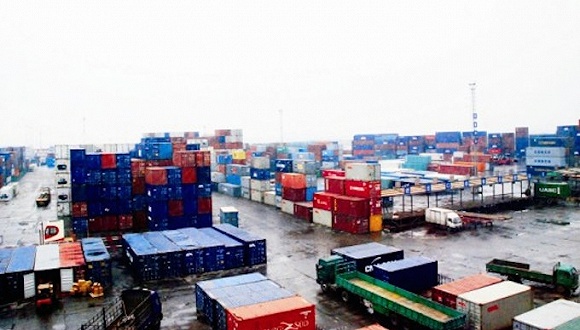Law of Commodity Circulation has been drafted by Department of Treaty and Law, Ministry of Commerce of PRC, however, due to the divergence from different ministries and commissions, this national law still cannot be published in 2016, according to Zheng Wen, Director of Department of Circulation Industry Development, Ministry of Commerce of the PRC.

Law of Commodity Circulation is aimed to promote the circulation system reform in China’s trading and to create the business environment that governed by law.
It is designed to better deal with the relationship between the government and market in the field of domestic trade circulation, and regulate the commodity circulation facilities, safety, rules, supervisions and facilitation.
Ministry of Commerce released the draft of Law of Commodity Circulation for public comments in March 31, 2015.
After modification, the revised draft for examination and approval was planned to send to Ministry of Commerce in the end of 2015.
It is always been very difficult for the Chinese government to reform on the market circulation in China’s domestic trade.
The circulation industry in China is facing the imbalanced development of modern circulating, lagging system of market regulation, defective public-good circulation facilities and operation pattern and blurred boundaries between the government and the market in domestic trade.
"Circulation is an important part in the social reproduction process. It is a link between production and consumption and plays an irreplaceable role in achieving stable growth, adjusting structure, improving livelihood and preventing risks” said Zheng.
For the development for China in the near future, China economic growth will mainly depend on the drive of innovation and demand. If Chinese government wants to guarantee the growth in consumption, it should put effort in developing the circulation industry.
The total amount of retail sales of consumer goods is expected to reach USD4.615 trillion, with the growth speed over 10% at the end of 2015, by Ministry of Commerce.
Because it is difficult for the government to publish the national regulation on circulation, Ministry of Commerce decided to have the local pilot projects to see whether it is possible to combine the circulation system with the practical domestic trade.
9 cities will join in the local pilot project of the domestic trade circulation system reform, including Shanghai, Nanjing, Xiamen, Guangzhou, Qingdao, Chengdu, Zhengzhou, Huangshi and Yiwu.
The local pilot project is aimed to explore how to create environment to develop E-commerce, create business environment governed by law, construct the developing system of circulation facilities, change the administrative management, and remove regional blockades and monopolies.
Such a reform starting from several cities to the whole countries is similar to the experiments of the 4 Free Trade Zones, including Shanghai, Guangdong, Fujian and Tianjin, to explore the modern governance system.
However, there still are some differences between the pilot project of the domestic trade circulation reform and the experiments of the 4 Free Trade Zones.
The experiments of the 4 Free Trade Zones focused on breaking the old rules, while the pilot projects of the domestic trade circulation reform emphasize on creating. For example, it aims at exploring how to improve the innovation development mechanism, how to bring news business modes and how to create a good environment for the new circulation ways.
However, there is no ready-made experience about the circulation system reform.
"That’s why it will also be difficult for the government to have the pilot project of domestic trade circulation reform” Zheng added.
*This article is a re-edited and translated version by CCM. The original version comes from www.cnchemicals.com/.
If you would like to know more about what's happening in China, please keep following us on CCM Perspective. We will keep you updated about China.